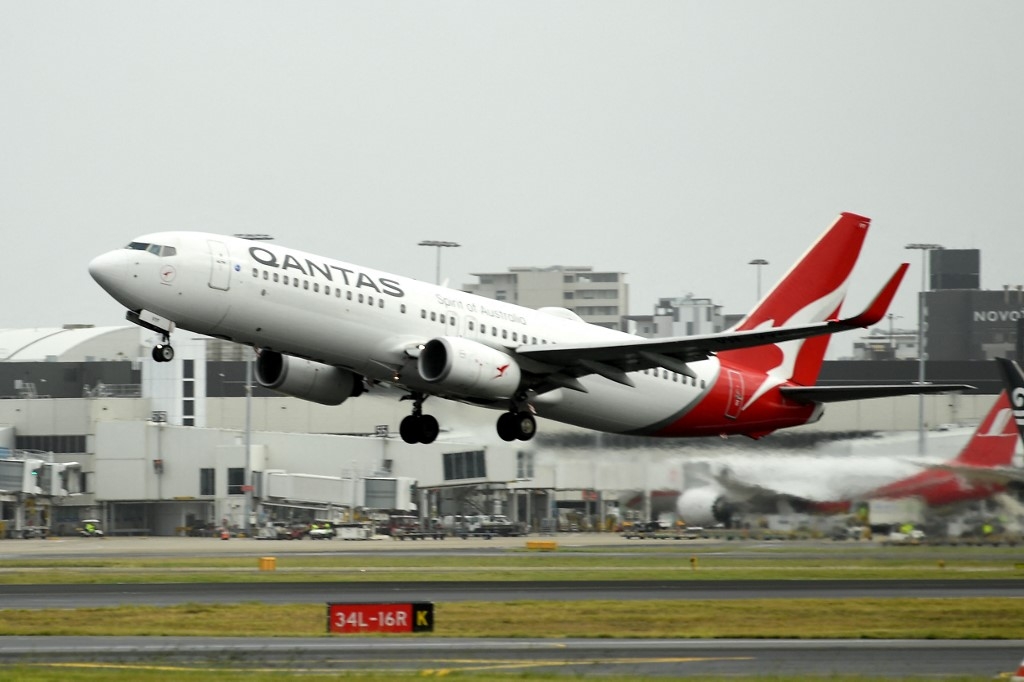Japan Airlines logs $2.6 billion loss over pandemic
 |
| A Qantas plane takes off from the Sydney International airport on May 6, 2021, as Australia's competition regulator said it would block a pricing, code-sharing and scheduling deal between Qantas and Japan Airlines because it would likely mean higher fares for passengers.(Saeed KHAN / AFP) |
The carrier, Japan's second-largest by market share, suffered a net loss of 286.7 billion yen for the year through March -- its first full-year result in the red since it relisted on the Tokyo Stock Exchange in 2012.
"There has been no indication of passenger demand recovery yet" due to restrictions on international travel and tougher immigration measures, JAL said.
"Our situation has been severe throughout this fiscal year."
The company last week revised its projection for 2020-21 net loss to 287 billion yen from a 300 billion yen forecast in February.
JAL said it had decided not to release an outlook for the year ending March 2022, warning "it is difficult to foresee the recovery of demand while the global spread of Covid-19 shows no sign of slowdown".
Sales plunged 65.3 percent compared to the previous year to 481.2 billion yen.
Last month, Japan's top airline ANA reported its worst ever annual loss of 404.6 billion yen, which was smaller than the firm's earlier projection.
But ANA Holdings said it expects to see a rebound to 3.5 billion yen net profit in 2021-22, as the coronavirus disruption that has battered the aviation industry worldwide begins to ease.
Japan's airlines had expected a bumper year in 2020, when the Tokyo Olympics were originally due to be held and tourist numbers were expected to break records.
The postponed Games are now set to open in July, but overseas spectators have already been barred from the event, with a decision on domestic fans delayed until June.
What the stars mean:
★ Poor ★ ★ Promising ★★★ Good ★★★★ Very good ★★★★★ Exceptional
 Tag:
Tag:
Related Contents
Latest News
More News
- State corporations poised to drive 2026 growth (February 03, 2026 | 13:58)
- Why high-tech talent will define Vietnam’s growth (February 02, 2026 | 10:47)
- FMCG resilience amid varying storms (February 02, 2026 | 10:00)
- Customs reforms strengthen business confidence, support trade growth (February 01, 2026 | 08:20)
- Vietnam and US to launch sixth trade negotiation round (January 30, 2026 | 15:19)
- Digital publishing emerges as key growth driver in Vietnam (January 30, 2026 | 10:59)
- EVN signs key contract for Tri An hydropower expansion (January 30, 2026 | 10:57)
- Vietnam to lead trade growth in ASEAN (January 29, 2026 | 15:08)
- Carlsberg Vietnam delivers Lunar New Year support in central region (January 28, 2026 | 17:19)
- TikTok penalised $35,000 in Vietnam for consumer protection violations (January 28, 2026 | 17:15)






















 Mobile Version
Mobile Version